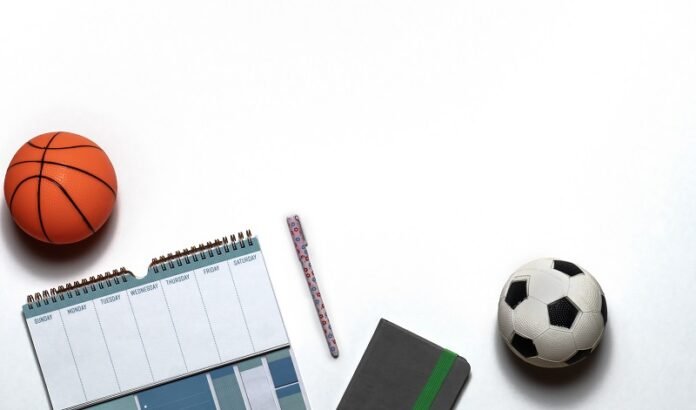
Sports are fun for kids and adults alike. The friendships forged through sports are often lifelong. Coaches teach athletes more than just what to do on the field, which will end up imparting important life lessons about teamwork, practice, determination, and grit. Being part of a sports team can be a game-changer for a person’s confidence and physique.
About every athlete, or parent of an athlete, has experienced a long sports day where you found yourself unprepared for the unexpected. Whether it was a game delay or bad weather, a little preparation can turn those disasters around.
-
Pop Up Marquee to Provide Shelter and Unite the Team
Versatility
A marquee for the team serves so many purposes, making it a priority on your list. Marquees can be custom printed with your team name and colors, making it easier for your team to gather on a crowded field. You can even have it printed with your sponsors’ logos as a way to honor them.
Furthermore, it can keep your equipment dry and provide shade for players between matches. You can even take your marquee to community events and use it as a tool to sign up for new players and sponsors.
What to Look for in a Marquee
Not all pop-up marquees are equal. For your sports team, look for one that’s SPF rated to protect players from the sun and waterproof. Also, in case of high winds, you want a heavy-duty frame with anchors.
You need a marquee large enough for the team, but also consider if they’ll be standing or sitting and how much equipment they’ll have with them. The marquee should be light enough to easily travel and be able to be set up and taken down by the coaches without special tools.
-
Snacks and Drinks to Fuel the Team
Most sporting venues offer some sort of refreshment. However, in many cases, these are limited in options and can be quite expensive. There’s no guarantee that the concessions will stay open until the last game, especially if the play is delayed. Thus, it’s best to be prepared with at least some snacks to get through the day.
Snack Considerations for Sports
There are really only two drinks you want for sports, water, and sports drinks. The carbonation and sugar in soft drinks or juice will not help your game. Similarly, sugary snacks should be avoided. No athlete wants to have a sugar crash in the middle of a game.
While there’s a wide array of sports goods, gummies, and bars available, the classic healthy snacks will be sufficient, in most cases. Think about snacks that are quick to eat between games and provide steady energy, such as small bags of apple slices, nuts, and cereal work.
-
An Emergency Kit for All Those Little Emergencies
All serious injuries should seek medical attention. But teams can have other types of emergencies, such as gear that creates blisters, ripped or stained uniforms, or missing essentials. While some essentials will be universal, others will be sport-specific.
Universal Essentials
Universal essentials apply to almost every sports outing. You’ll need band-aids, wet-wipes, safety pins, and, in some instances, a sunscreen. Also, bring over-the-counter medications for headache, indigestion, and allergies.
If you know people will be waiting between games, also take decks of cards or books to help pass time.
Sport Specific Essentials
Each sport will have specific items you want to bring to game days. For example, if you’re swimming, bring an extra swim cap and nose clip. If your sport is cheer or dance, your emergency kit will include hairspray, bobby pins, and ponytail holders.
The important thing is to take a moment and think about what might go wrong then pack accordingly.
-
Schedule
Practice Schedule
Every team should have a clearly defined practice schedule. Teams need to know the coaches’ expectations regarding absences, attire, and punctuality. A practice schedule is particularly important if your team’s practice location or time varies weekly. Also, any holidays should be clearly marked.
Game Day Schedule
It’s insufficient to provide the team with the time of their first match or game and hope they show up with enough time to warm up. A good game day schedule includes time to warm up and allows for transition time from the gathering area to the game field.
If there’s a chance of playing more than one game in a day, this needs to be clearly indicated on the schedule. If a coach wishes to review the game with the players before they leave the field for the day, that should be included on the schedule as well. Finally, for safety’s sake, if your team is a young team, include instructions for signing children out after the game.
-
Comfortable Seats
Seats for Spectators
Hours of sitting can really take a toll on your back. Consider the type of seating available at your sports venue and plan accordingly.
Typical bleacher seats don’t have back support and can be very cold in the late fall or early spring. Fortunately, there are many different types of foldable chairs that are light and easy to transport. Furthermore, stadium seats that rest on top of the bleachers have padded bottoms and backs just for that reason, which can be easily purchased at major retailers.
Seats for Athletes
When considering seating needs, don’t forget your athletes. They need somewhere comfortable to rest between games and eat. Our #1 item on this list, a pop-up marquee, can make your athlete seating area protected from the elements and encourage socialization.

























